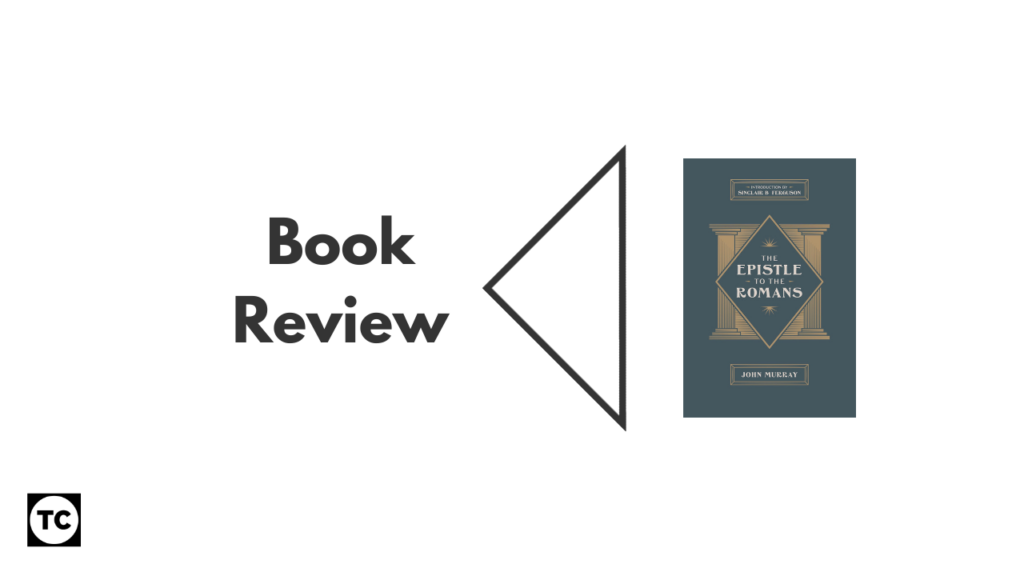Reviewing commentaries is a tricky business – particularly for me as a generalist, and an in-publisher editor of commentaries! I tend to offer my review based on the format and content of the volume, and it’s utility or otherwise to preachers and pastors. Occasionally I’ll digress into particularly theological or stylistic quirks.

Engaging with, reading and reviewing this commentary represents one of those lovely confluences of my personal discipleship and professional interests – and hopes and dreams. Continuing my practice of reading through a book of the Bible devotionally with a commentary, I picked up this commentary on Romans. Yet it is also an interesting piece of publishing – for whilst Westminster Seminary Press published it in late 2022, this volume finds it’s genesis in two volumes, the first published in 1959, as entries in the then new commentary series from Eerdmans, The New International Commentary on the New Testament (NICNT). Those two volumes were eventually published as one – but with separate pagination, so the overall effect was more like sticking them together, and eventually superseded by Douglas Moo’s volume. This, then, is less a review of a commentary (as this book has been read and appreciated for almost more than twice my lifetime!) and rather a short review of this edition. Headline: if you have a previous edition of Murray’s Romans commentary, you might want to consider purchasing this and giving away your old copy, for conveniences sake; if you haven’t read it, then this is an excellent addition to a pastor’s library.
As Sinclair Ferguson notes in his very helpful introduction, a major benefit of this edition is that the text has been cleaned up and the book is presented as a single volume, with a single thread of pagination (page numbers) throughout, rather than going pages 1-300, and then again 1-300. By combining the two volumes properly, Westminster Seminary Press is to be commended for it being a more usable volume than the previous single volume, and probably a smaller footprint on the shelf than the original two hardback volumes. As a book this is also a beautifully produced ‘thing’ – good paper, a nice cover design, and lovely inlaid gold foil on the robust cloth inner cover. It would make a nice gift for a new pastor!
As a commentary, Murray’s work on Romans is notable for being the product of a systematic theologian doing good exegesis – which makes this perhaps more unified and less piecemeal than some, trained in the expositors’ guild. Perhaps reflecting it’s genesis more than 60 years ago, the relatively short introduction (ten pages, which is very short for the length of commentary in contemporary terms) gives way to around 550 pages of commentary, which is accessible to those without greek, but those who have it will benefit a little more, I think. A total of ten appendices round out the volume, before the expected indices, for a total of about 700 pages. This is a weighty tome.
Yet it is also a deeply pastoral one – and one that I found myself much fed and encouraged by in my devotional reading. There are regular deep and warm references to the idea of union with/in Christ – a theme in Romans but one often ignored in wider evangelical preaching and spirituality. I appreciated his wording around a definition of sin: “The essence of sin is to be against God; it is the contradiction of God” (p. 278). Another theme in Romans that I felt Murray made sing was that of hope; “The hope and expectation of the glory to be revealed sustain the people of God in the sufferings and groaning of this present time (vss. 18-25)” (p. 299). Holiness and discipleship are also amply treated, echoing some of the concerns of the letter – with the caveat that Murray’s wording around his comments on human sexuality has perhaps not aged well, even if I am in agreement with the substance of his position!
Overall, then, if you have never read this commentary, and are broadly reformed or evangelical, this will do you good to own and read. If you are a preacher, Murray offers a pleasant balance of intelligent theological interpretation, exegetical sensitivity, and this without the intervening years of scholarship (I’d suggest Moo, or Garland’s recent Tyndale Commentary, as ways to brush up on the state of scholarship since then) getting in the way of Murray’s patient, warm and encouraging writing. If I ever have the privilege of preaching Romans, Murray will be on the desk – and in other work on parts large and small of this epistle, I will be sure to turn to it. It is only it’s historic nature that prevents it from being a 5/5 commentary for me – though, as I alluded to, the physical production and editorial decisions are a 5/5 for me!
4/5
Leave a Reply